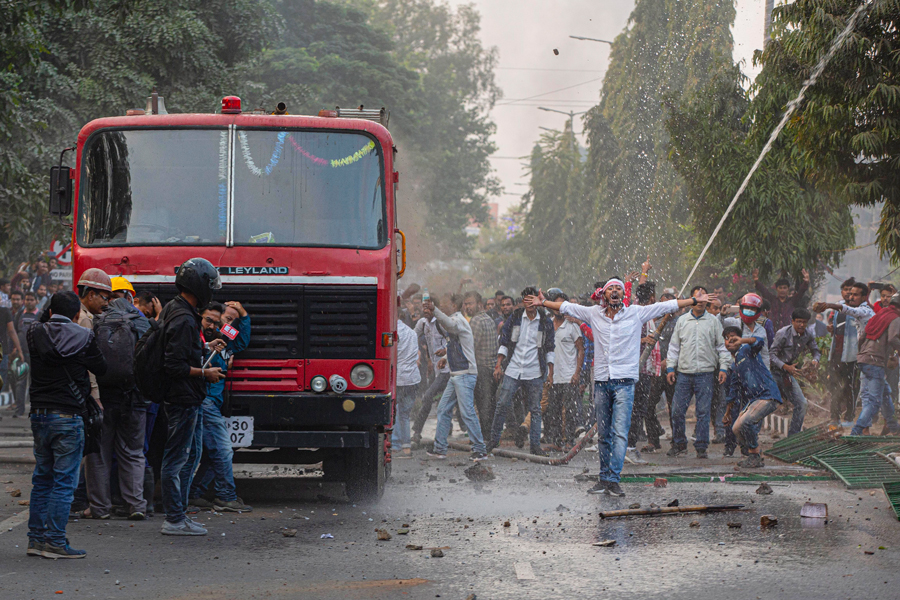Signing of India citizenship bill spurs more protests
China Daily | Updated: 2019-12-14 14:29

NEW DELHI/GUWAHATI, India-A controversial citizenship bill has been signed into law in India, fanning widespread protests in the country's northeast that on Friday led to the cancellation of a planned visit by Japanese Prime Minister Shinzo Abe.
With this law, the Indian government will grant citizenship to those non-Muslim immigrants who entered the country illegally before Dec 31, 2014.
Internet access was cut in the northeastern city of Guwahati, in Assam state, on Friday as thousands gathered for fresh protests against the law. The latest round of protests comes a day after police shot dead two demonstrators as mobs torched buildings and attacked railway stations. Protesters said the law would convert thousands of illegal immigrants into legal residents.
Separately, security was increased at the Bangladeshi consulate in Guwahati after a vehicle in the consul's convoy was attacked on Wednesday by mobs protesting against the bill's adoption, the Foreign Ministry in Dhaka said in a statement late on Thursday.
Five thousand paramilitary troops had been deployed in Guwahati, while many roads and highways were blocked to prevent the spread of protests.
The new law lays out a path for Indian citizenship for six minority religious groups from neighboring countries, including Bangladesh, Pakistan and Afghanistan.
Indian President Ram Nath Kovind gave his assent to the bill late on Thursday, signing it into law, an official statement said.
Indian Prime Minister Narendra Modi had planned to host Abe at a meeting in Assam next week as part of a campaign to move high-profile diplomatic events outside Delhi to showcase India's diversity.
Without saying why, India said that both sides had "decided to defer the visit" by Abe from Sunday to Tuesday, while Tokyo said the move followed "a report from the Indian side about the situation there".
A movement against immigrants from neighboring Bangladesh has raged in Assam for decades. Protesters said granting Indian nationality to more people would lead to a huge influx from across the border and further strain the resources of the tea-growing state.
Infrastructure
Japan has in recent years stepped up infrastructure development work in Assam that the two sides were expected to highlight during the meeting. Abe had also planned to visit a memorial in the nearby state of Manipur, where Japanese soldiers were killed during World War II.
Critics of Modi's Hindu nationalist government said the bigger problem with the new law is that it is the first time India is using religion as a criterion for granting citizenship and that it excludes Muslims from its ambit.
The law seeks to grant Indian nationality to Buddhists, Christians, Hindus, Jains, Parsis and Sikhs who fled Muslim-majority neighboring countries before 2015.
The Indian Union Muslim League party has petitioned the Supreme Court saying the law was in conflict with the secular principles of India's Constitution that guaranteed equality to all without any regard to religion. No date has yet been set for the hearings.
XINHUA
























